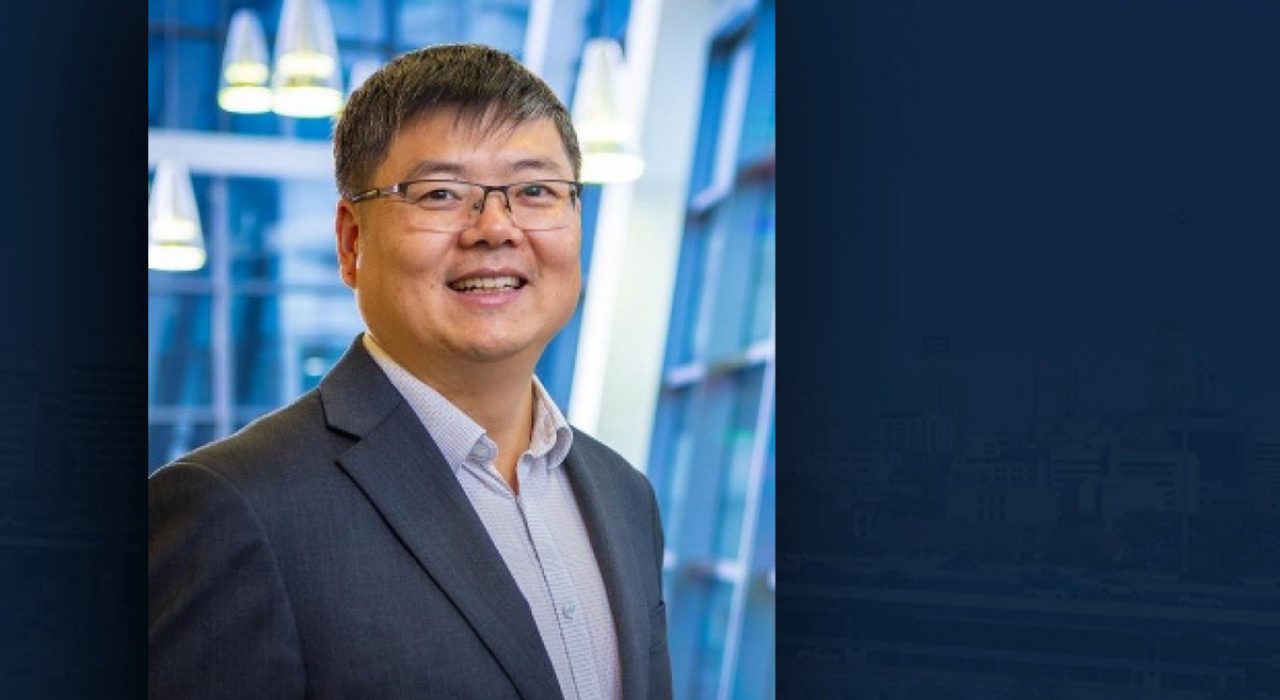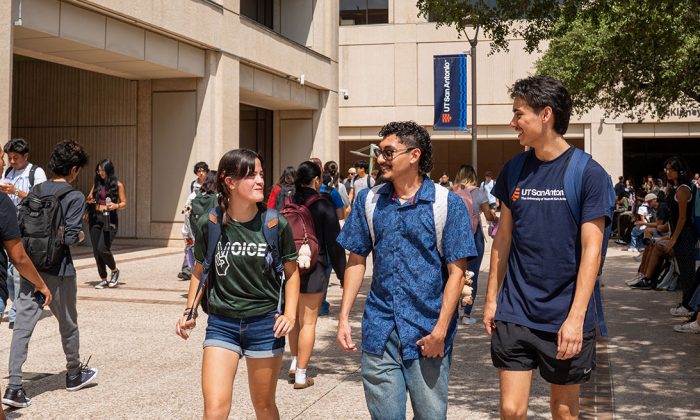UT San Antonio announced on Tuesday the appointment of Jinjun Xiong as founding dean of the College of AI, Cyber and Computing.
Currently the SUNY Empire Innovation Professor and director of the Institute for Artificial Intelligence and Data Science at the University at Buffalo (UB), Xiong will step into his role at UT San Antonio on March 1. UB is the flagship university of the State University of New York (SUNY) system.
“It is my pleasure to welcome Jinjun Xiong to UT San Antonio’s academic leadership team,” said Provost and Senior Executive Vice President for Academic Affairs Heather Shipley. “Dr. Xiong possesses both the innovation spirit and proven track record of collaboration between academia and industry that is critical to the college’s role in advancing the university’s mission as a national leader in technology and innovation.”
“I thank the search advisory committee and chair Eric Brey for their dedication and efforts in cultivating an exceptional pool of candidates to champion the promise of our newest college,” Shipley added.
As director of UB’s Institute for Artificial Intelligence and Data Science, Xiong has led strategic partnerships between faculty researchers, private businesses and government agencies to advance multidisciplinary research and curriculum development.
He is also the scientific director for the $20 million award for the National AI Institute for Exceptional Education, which seeks to develop AI technologies to assist children with speech and language processing challenges.
Xiong is also the AI Thrust Lead for the $10 million award for the National Center for Early Literary and Responsible AI, where he advances generative AI technologies to improve children’s early literacy skills.
Prior to joining UB, the computer scientist was program director and research scientist at IBM Thomas J. Watson Research Center in Yorktown Heights, New York. He was part of the IBM team charged to accelerate and scale the IBM’s pioneering AI technology — the Watson system that famously competed on the quiz show, “Jeopardy!” in 2011, defeating champions Brad Rutter and Ken Jennings — for a wide range of commercial applications.
It was an early signal of the potential power of artificial intelligence, but one that Xiong said left him wondering how such powerful technology could help humans, rather than best them.
That question has led Xiong to research in earthly AI, a term he coined for using artificial intelligence for social good, including creating AI solutions for educational and sustainability challenges.
During Xiong’s tenure at IBM, he demonstrated exceptional leadership in fostering academic–industry partnerships.
In 2016, he co-founded and co-directed the IBM-Illinois Center for Cognitive Computing Systems Research at University of Illinois Urbana-Champaign (UIUC). The center’s success led to the creation of the IBM-Illinois Discovery Accelerator Institute, a joint $200 million research investment between IBM, UIUC and the State of Illinois in 2021.
Xiong also co-founded the IBM Smarter Energy Research Institute (SERI), where he led enterprise-scale collaborations with global electric utility companies to address critical sustainability issues through renewable energy integration.
Xiong earned a PhD in computer engineering from UCLA, with an Outstanding PhD Award, and an MS in electrical and computer engineering from the University of Wisconsin–Madison.
He has published more than 200 peer-reviewed papers, won nine best paper awards and filed more than 60 patents within the U.S. and internationally; many of his research results have been adopted in commercial enterprise-scale products and tools.
“I am delighted to join the College of AI, Cyber and Computing and work alongside our faculty, students and partners to continue to explore how AI, data science and other technologies can realize their full potential to solve society’s challenges,” Xiong said. “I also am energized to collaborate with colleagues across UT San Antonio to find opportunities for how AI can help others solve challenges in their fields.”
“Technology advancement is inevitable,” Xiong added. “We must have continuous investment in AI research to successfully adapt to the changing world and to create an educated workforce ready to utilize them for social good.”
The College of AI, Cyber and Computing officially launched Sept. 1, 2025, following a yearlong initiative to align the university’s academic programs to better meet the growing demand for innovation, talent and research in artificial intelligence, cybersecurity, computing and data science.



